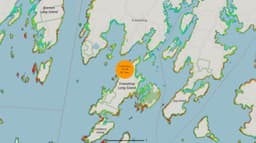Home / Science / Coastal Resilience Research Halted After Federal Funding Cuts
Coastal Resilience Research Halted After Federal Funding Cuts
13 Nov, 2025
Summary
- Marine policy researcher loses funding for storm damage prediction system
- Collaboration with URI professor to create C.H.A.M.P. system stopped
- Emergency managers can no longer access critical storm impact data

In 2014, a marine policy researcher at the University of Rhode Island began developing a new system called C.H.A.M.P. (Coastal Hazards, Analysis, Modeling and Prediction) to help emergency managers quickly assess the potential damage from hurricanes and nor'easter storms. The researcher collaborated with a professor at the university's Graduate School of Oceanography to create this innovative tool.
The C.H.A.M.P. system provided emergency managers with detailed information about the specific infrastructure and facilities that could be damaged by an approaching storm, including roads, backup generators, electrical transformers, and HVAC systems. This allowed them to better prepare and respond to the threat. However, as of November 2025, this critical work has been forced to a halt.
The researcher's team had four projects funded through the Department of Homeland Security's Centers of Excellence program, but on April 8th of this year, the department terminated the entire program. This sudden loss of funding has forced the researcher to stop work on several projects and cancel planned trainings to show communities how C.H.A.M.P. could be used. Despite having completed the bulk of the work, the team was unable to deliver on their promises to provide this vital early warning and planning system to the communities that need it most.




